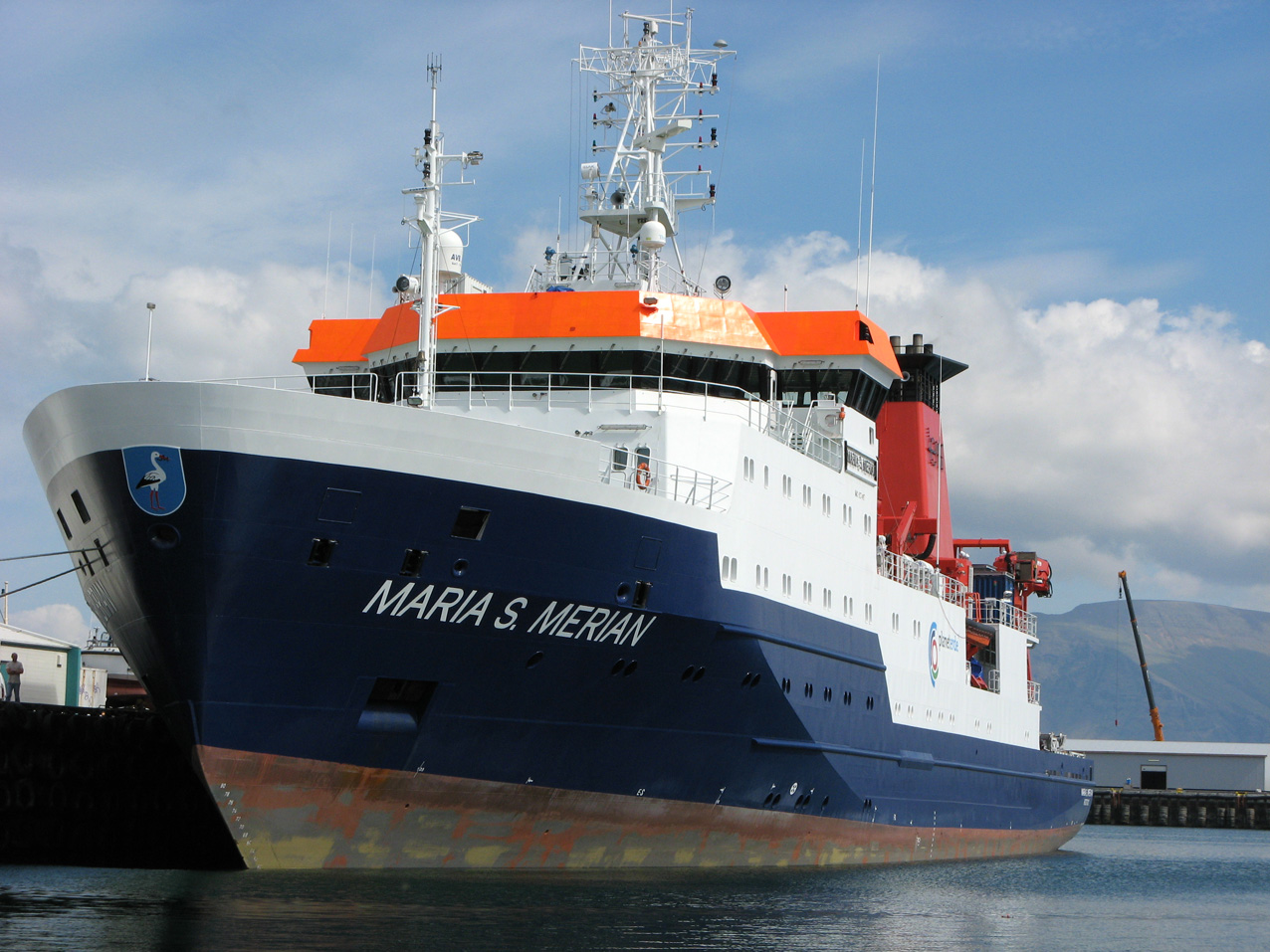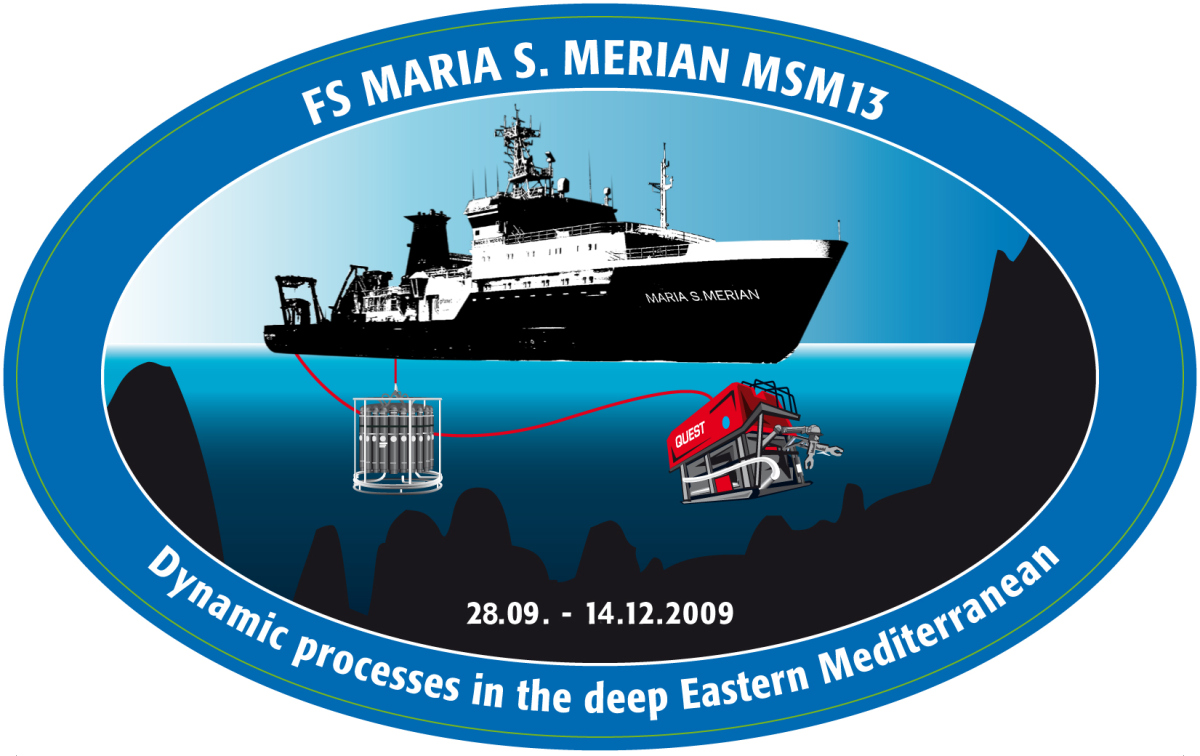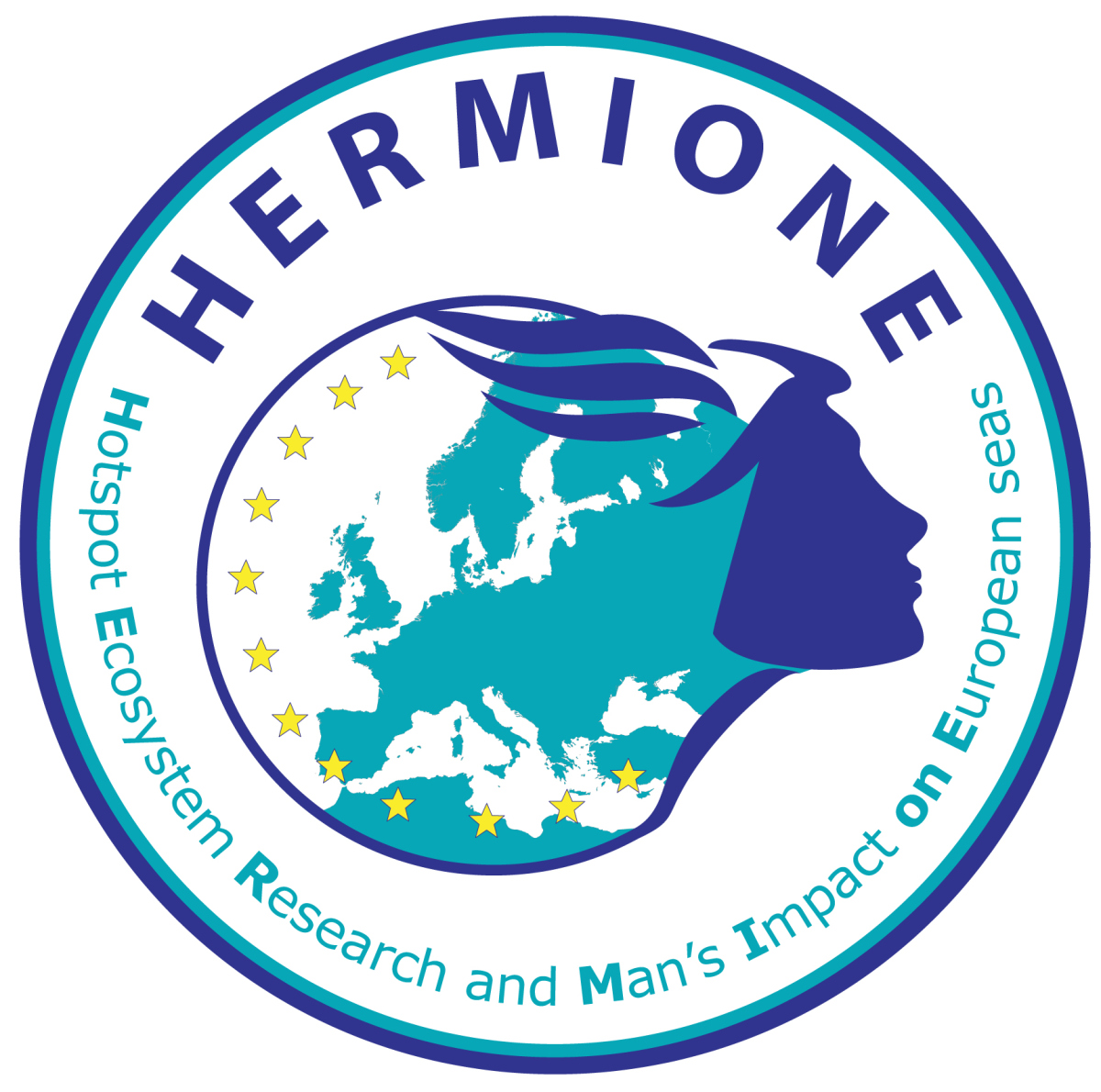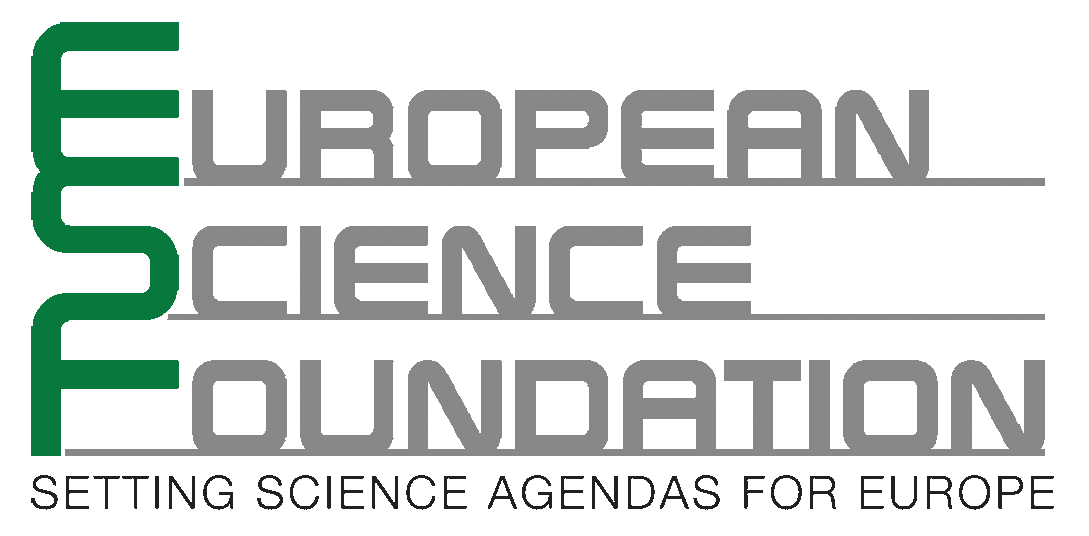Seitenpfad:
- Presse
- Pressemeldungen 2009
- 19.10.2009 European deep-sea research: Climate ...
19.10.2009 European deep-sea research: Climate changes and deep-sea ecosystems
European deep-sea research: Climate changes and deep-sea ecosystems in the Eastern Mediterranean Sea
Scientists of the Max Planck Institute for Marine Microbiology in Bremen, the University of Hamburg and their European colleagues investigate the deep-sea environment in the Eastern Mediterranean Sea. In the framework of their expedition, the German research vessel Maria S. Merian visits for the first time the port of Cyprus on 22 October 2009. The Maria S. Merian is one of the most modern multidisciplinary vessels of the European research fleet. The chief scientists Dagmar Hainbucher (University of Hamburg) and Antje Boetius (Max Planck Institute Bremen) will invite colleagues and authorities from Cyprus to a reception on board the MERIAN, to inform about the objectives of the expedition. The New Lemesos Port of Cyprus will be the main berth of RV MERIAN for a number of subsequent MERIAN cruises from October 2009 to May 2010.
For the scientific weblog click here
Scientists of the Max Planck Institute for Marine Microbiology in Bremen, the University of Hamburg and their European colleagues investigate the deep-sea environment in the Eastern Mediterranean Sea. In the framework of their expedition, the German research vessel Maria S. Merian visits for the first time the port of Cyprus on 22 October 2009. The Maria S. Merian is one of the most modern multidisciplinary vessels of the European research fleet. The chief scientists Dagmar Hainbucher (University of Hamburg) and Antje Boetius (Max Planck Institute Bremen) will invite colleagues and authorities from Cyprus to a reception on board the MERIAN, to inform about the objectives of the expedition. The New Lemesos Port of Cyprus will be the main berth of RV MERIAN for a number of subsequent MERIAN cruises from October 2009 to May 2010.
For the scientific weblog click here
The modern German research vessel Maria S. Merian, named after the German scientist and artist Maria Sibylla Merian. (source: N. Verch, University of Hamburg)
The main research objective of the Maria S. Merian expedition MSM13 led by Hainbucher and Boetius is to understand the dynamics of the Eastern Mediterranean Deep Sea, from climate change effects on deep-water formation to the distribution of enigmatic deep-sea ecosystems.
Previous hydrographic research in the Eastern Mediterranean has recorded evidence for dramatic changes in deep-water formations. In the late 80’s, much warmer and saltier water from the Aegean Sea has replaced the cold and fresh water originating from the Adriatic Sea. Expeditions in recent years indicate that the process of deep-water formation might now reverse again. How the dynamics of the thermohaline circulation will induce a climate change and to what extent the different water masses contribute to the deep-water formation is currently investigated on board the MERIAN during the first and second leg led by Dagmar Hainbucher. Moorings and floats have been deployed at four locations in the Adriatic and Ionian Seas collecting oceanographic data for up to two years, to provide long term information about fluctuations of water mass distributions. Furthermore, the expedition contributes to training of young scientists at sea.
Previous hydrographic research in the Eastern Mediterranean has recorded evidence for dramatic changes in deep-water formations. In the late 80’s, much warmer and saltier water from the Aegean Sea has replaced the cold and fresh water originating from the Adriatic Sea. Expeditions in recent years indicate that the process of deep-water formation might now reverse again. How the dynamics of the thermohaline circulation will induce a climate change and to what extent the different water masses contribute to the deep-water formation is currently investigated on board the MERIAN during the first and second leg led by Dagmar Hainbucher. Moorings and floats have been deployed at four locations in the Adriatic and Ionian Seas collecting oceanographic data for up to two years, to provide long term information about fluctuations of water mass distributions. Furthermore, the expedition contributes to training of young scientists at sea.
Left: The unmanned autonomous underwater vehicle (AUV) retrieved after its journey to the deep-sea floor. Right: The romotely operated vehicle (ROV) on its way down. (source: Gerrit Meinecke, MARUM )
The third and fourth leg of the expedition starting 25 October from Limassol led by Antje Boetius will carry out complex in-situ experiments and detailed mapping of deep-sea ecosystems with the deep submergence vehicles ROV Quest4000 and AUV Seal (MARUM, University Bremen). In the sunless ecosystem of the Eastern Mediterranean seafloor exotic organisms such as giant tubeworms, symbiotic mussels, and colorful bacterial mats thrive on reduced chemical substances from the seafloor as sole energy source. Other energy-starved deep-sea organisms can profit from the prolific life at mud volcanoes and brine pools of the Eastern Mediterranean Sea. The scientists hope to fill the knowledge gap about threatened deep-sea marine ecosystems and the interaction of these systems with the global biosphere in the framework of the EU project HERMIONE, which aims at providing scientific information for the conservation of the deep ocean ecosystem.
Susanne Borgwardt
Susanne Borgwardt
For further information please contact:
Dr. Manfred Schlösser, Tel: 0421 2028 – 704,
[Bitte aktivieren Sie Javascript]
Dr. Susanne Borgwardt, Tel: 0421 2028 – 704,
[Bitte aktivieren Sie Javascript]
Projects:
- Within the seventh framework programme of the European Commision a new project entitled HERMIONE (Hotspot Ecosystem Research and Man’s Impact on European Seas) started in spring 2009. It will focus on the human impacts on ecosystems on the deep-sea and translate the scientific data into national and international policies.
- The GDRE (European scientific coordination networks) project DiWOOD (Diversity of Organisms Associated to Marine Woods Falls) is a cooperation between the Max Planck Gesellschaft (MPG) in Germany and the Centre National de la Recherché Scientifique (CNRS) in France.
- The collaborative research project CHEMECO in the context of the European Science Foundation and European Collaborative Research programme (EUROCORES) EuroDEEP realizes a multidisciplinary study of colonization processes at several sites distributed in the European waters, from the Mediterranean Sea to the Atlantic Ocean and Nordic sea.
Participating Institutions:
AWI - Alfred-Wegener Institut für Polar- und Meeresforschung, Bremerhaven, Germany
Cà Foscari University of Venice (UVE), Department of Environmental Sciences - Microbiology Laboratory, Venice, Italy
Department of Food Science and Microbiology (DiSTAM), Faculty of Agriculture - University of Milano, Italy
IfM-GEOMAR – Kiel, Germany
IFREMER (Brest) - Centre Ifremer de Brest, DRO/Département Environnement Profond, Plouzané, France
Institut für Biogeochemie und Meereschemie (IFBM), Zentrum für Marine und Atmosphärische Wissenschaften - University of Hamburg, Germany
Institut für Meereskunde (IFM-ZMAW), Zentrum für Marine und Atmosphärische Wissenschaften - University of Hamburg, Germany
Istituto Nazionale di Oceanografia e di Geofisica Sperimentale (OGS), Dipartimento Oceanografia, Sgonico (TS), Italy
MARUM - Zentrum für marine Umweltwissenschaften, University of Bremen, Germany
Max-Planck-Institut für Marine Mikrobiologie, Bremen, Germany
NIOF - National Institute of Oceanography and Fisheries, Alexandria, Egypt
University Ghent - Biology Department, Ghent, Belgium
Université Pierre et Marie Curie, Paris, France
University of Thessaly - Dept. of Ichthyology and Aquatic Environment, Faculty of Agricultural Sciences, Nea Ionia, Greece
Dr. Manfred Schlösser, Tel: 0421 2028 – 704,
[Bitte aktivieren Sie Javascript]
Dr. Susanne Borgwardt, Tel: 0421 2028 – 704,
[Bitte aktivieren Sie Javascript]
Projects:
- Within the seventh framework programme of the European Commision a new project entitled HERMIONE (Hotspot Ecosystem Research and Man’s Impact on European Seas) started in spring 2009. It will focus on the human impacts on ecosystems on the deep-sea and translate the scientific data into national and international policies.
- The GDRE (European scientific coordination networks) project DiWOOD (Diversity of Organisms Associated to Marine Woods Falls) is a cooperation between the Max Planck Gesellschaft (MPG) in Germany and the Centre National de la Recherché Scientifique (CNRS) in France.
- The collaborative research project CHEMECO in the context of the European Science Foundation and European Collaborative Research programme (EUROCORES) EuroDEEP realizes a multidisciplinary study of colonization processes at several sites distributed in the European waters, from the Mediterranean Sea to the Atlantic Ocean and Nordic sea.
Participating Institutions:
AWI - Alfred-Wegener Institut für Polar- und Meeresforschung, Bremerhaven, Germany
Cà Foscari University of Venice (UVE), Department of Environmental Sciences - Microbiology Laboratory, Venice, Italy
Department of Food Science and Microbiology (DiSTAM), Faculty of Agriculture - University of Milano, Italy
IfM-GEOMAR – Kiel, Germany
IFREMER (Brest) - Centre Ifremer de Brest, DRO/Département Environnement Profond, Plouzané, France
Institut für Biogeochemie und Meereschemie (IFBM), Zentrum für Marine und Atmosphärische Wissenschaften - University of Hamburg, Germany
Institut für Meereskunde (IFM-ZMAW), Zentrum für Marine und Atmosphärische Wissenschaften - University of Hamburg, Germany
Istituto Nazionale di Oceanografia e di Geofisica Sperimentale (OGS), Dipartimento Oceanografia, Sgonico (TS), Italy
MARUM - Zentrum für marine Umweltwissenschaften, University of Bremen, Germany
Max-Planck-Institut für Marine Mikrobiologie, Bremen, Germany
NIOF - National Institute of Oceanography and Fisheries, Alexandria, Egypt
University Ghent - Biology Department, Ghent, Belgium
Université Pierre et Marie Curie, Paris, France
University of Thessaly - Dept. of Ichthyology and Aquatic Environment, Faculty of Agricultural Sciences, Nea Ionia, Greece






